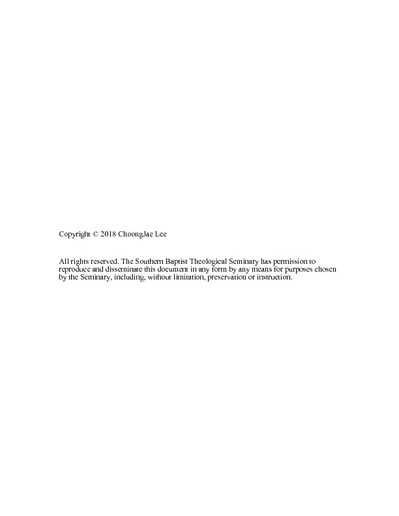Metánoia (Repentance): A Major Theme of the Gospel of Matthew
Abstract
Mετάνοια (repentance) is a major theme of Matthew, manifested in Jesus’ first words in Matthew 4:17. Matthew 4:17 summarizes Jesus’ teaching and ministry (cf. 3:2) and the command to turn (μετανοέω) in view of the imminent coming of the kingdom of heaven to be a major message of Jesus’ teaching in Matthew, while 11:20-21 denotes μετάνοια as the aim of Jesus’ wonderworks ministry. Despite the few direct mentions of μετανοέω and μετάνοια elsewhere in the Gospel, the theme of μετάνοια (repentance) based on its meaning, which is a turn (or a change) of one’s mind (or will, heart) and conduct, and thus whole life to Jesus and the kingdom of heaven, is constantly taught and illustrated as a major theme in various ways in the body of Matthew. Historically, research examines the understanding of μετανοέω and μετάνοια from early church writings to modern commentaries and suggests different English translations of “turn” and “turning” instead Tyndale’s translation “repent” and “repentance.”
John the Baptist’s μετάνοια preaching block (3:2-12), introduces μετάνοια and the fruit worthy of μετάνοια (3:8, 10) as a major theme of Matthew. Major Matthean topics such as the discipleship, the language of righteousness, doing the will of God, changing one’s heart and mind, the Great Commission, and Matthean soteriological theme convey the essence of μετάνοια and the fruit worthy of μετάνοια, echoing the opening commandment of turning (μετανοέω) in 4:17. The five major Matthean discourse blocks (5-7; 10; 13; 18; 23-25) state and restate the theme of μετάνοια in a variety ways demonstrating μετάνοια as a major theme. The Sermon on the Mount expresses the nature of μετάνοια and fruit worthy of μετάνοια. The commissioning discourse of Matthew 10 charges the apostles to proclaim μετάνοια. Matthew 13 uses parables to illustrate Jesus’ μετάνοια ministry and its mixed reception and to exhort μετάνοια. Matthew 18 commands μετάνοια through humility and servanthood using its synonym στρέφω, “to turn” (18:3). Matthew 23-25 shows the negative contents of μετάνοια (Matt 23), proclaims the judgment of the coming kingdom (Matt 24), and directs listeners to be ready for the second coming of Christ (Matt 25) paralleling John the Baptist’s ministry of μετάνοια and its worthy fruit as preparation for the first coming of Christ (3:2-3).

